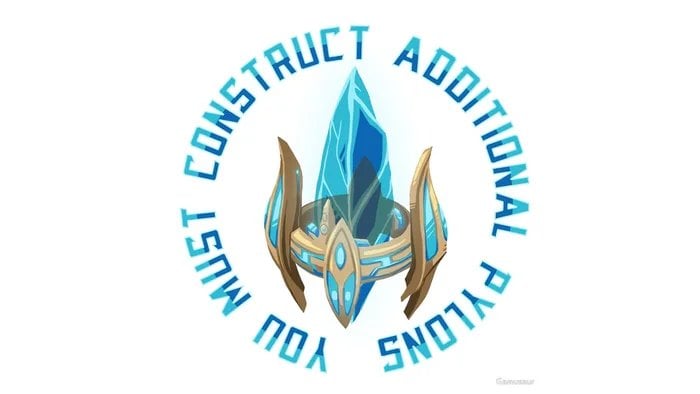Yeah only 2 generations ago, LGBT people were considered mentally ill. 4 generations ago women were considered unfit to vote. 8 generations ago about half the US though it was OK to own slaves. It takes a while for ideas to die out. That’s why US elections turn out the way they do.
Two steps forward. One step back
Wonder how long it’ll take before we get to step forward again. As far as I’m seeing, we’re in for a long ride back. Not just for 4 years.
The American people are pretty fickle. It won’t take long for them to become unhappy with the Republican party. Of course once that happens and you and I are celebrating “Yay! We got rid of the fascists!” they’ll be going “Hmm… These other guys are pretty uninspiring. Maybe we should try fascism again.”
* There’s a big asterisk here that this is all predicted on elections continuing unabated. Which is not a given.
Removed by mod
Removed by mod
Removed by mod
Removed by mod
This has happened before. Even after Abu Ghraib Bush Jr won re-election. Even after Iran-Contra the Republicans won re-election.
But the fact is that they do not have the answers. They can only take things for themselves, and hope that people give up.
It wouldn’t surprise me if Trump made it President for life.
I pray america doesn’t last his lifetime or that it dies with him
two steps forward, random.randint(1,4) steps back.
The lengths Americans will go to in order not to use the metric system is insane.
I am interested in learning about this metric time.
Oh?
“450 mothers ago” is roughly 363,500 megaseconds ago.
To be fair, measuring that in moms seems more intuitive.
It’s also about the speed of light in millifortnights (2.9e8), within a 4% error margin.
I’d like mothers represented metric tbh, I’m in a meeting and not able to do the math rn but if anyone else can oblige …
You can probably propose a new SI-base unit of “a mother”, but what does it measure?
“Metric” just essentially comes from “metering”. People confuse “metric” with “decimal”, which is sort of the point of the person I replied to. While metric time technically exists insofar as you just use seconds as the base unit, omit minutes and hours and just do SI-prefixes, the French did also try decimal time, but it was just horrible.
So if “mother” was the base unit and it measured something, in this instance time, the advent of agriculture was roughly four hectomothers ago. Or 0.4 kilomothers, if you will.
Mother as a unit of time.
Ty
Edit the mother epoch presumably is the same epoch as all time, just … related to the mothers as above.
Ty
But see we already got the base unit of a second for time. But for generations, perhaps?
One kilomother would’ve been the early modern human, roughly. Ten kilomothers ago homo sapiens was just coming into being. A hundred kilomothers ago homo erectus would’ve just been coming into existence. A megamother ago we would’ve been diverging into great apes.
Motheric
metric time actually was a thing, and it sucked so nobody used it.
It didn’t suck exactly, time is just so much more prevalent than other units that switching to a new system was even more contentious. Current time is just as arbitrary (although maximizing for maximum number of prime factors is pretty nice, even if it doesn’t mesh nicely with other metric units)
Metric really missed out by not being dozenal. SMH
The French tried to impose “metric” time way back in the day. Even they learned that was a bad idea and quietly dropped it. The solar system seems to prefer it’s base12 time.
I think it maybe helped give rise the the saying: “The French follow no one. And no one follows the French.”
They were discussing converting the AU to 1 ‘your mom’ as a better frame of reference, but France wouldn’t sign on
What is the conversion from imperial mother to metric mother? About 1:1.26?
That’s not a well-founded assumption. The average age of first birth was only 21 as recently as 1970. Go back a few hundred years and it’s way younger than that. Many women throughout history became mothers as soon as they were able (right after the onset of puberty). Many cultures had rites of passage into adulthood for boys and girls of that age. There was no such thing as adolescence.
In Western Europe at least back to the early medieval period it was common for anyone who wasn’t nobility to have their first child around 22. The younger you are the more likely you’re going to have serious (fatal, back then) complications. It was the nobility that was marrying off barely pubescent kids.
It was the nobility that was marrying off barely pubescent kids.
Same as it ever was.
Could we say (for no other reason than I’m stoned and it sounds good) the rough average mother-age is 18-ish? Then there would be roughly ~110 mothers since Jesus cheated and respawned for our sins.
What was it like outside of Western Europe?
No idea, I’m not as read up on that. It would shock me if it was significantly different just because risk of death from complications is a hard biological line the younger you get, pre-modern medicine.
There are definitely cultures who have practiced polygyny to get around this issue. Some still do today, for example in many different countries in Africa where people still practice a pastoral life.
I don’t see how polygyny gets around the issue of risk of death from pregnancy.
Polygyny would get around the issue of men getting killed.
Polygyny is where one man has many wives.
Edit: This first point was wrong, but the second point still stands.
Polygyny wouldn’t solve the aforementioned problem if we suppose that the birth rate of men and women is roughly the same. If one man has many wives, some of whom even die, then several other men won’t have any wives.
As the other commentator says, medieval Europe was mostly early twenties. Studies of stone age remains suggest a first birth age average of 19.5 and contemporary hunter gather societies have a comparable average. Sexual activity generally begins earlier, during adolescence, but the most “reproductively successful” age for beginning childbearing has been shown to be around 18-19. Also, this age at first birth isnt “Average age of a child’s mother” as many women would have multiple kids over their life, so the average sibling would have a much older mother at birth than the firstborn.
Its important to remember that puberty has shifted massively since industrialisation, "menarche age has receded from 16.5 years in 1880 to the current 12.5 years in western societies". So the post-puberty fecundity peak, that use to happen 17-19, when women are fully grown enough to minimise birth complications, now happens at a disressingly young 13-15. Not only is this a big social yuck for most western societies, but it’s reproductively unideal, because of the complications linked to childbirth at that age.
Huh, that’s interesting. Do we know why the menarche age has receded?
if you click that second study link it’s exactly about that
First births yes, but what about average age? Our ancestors may have been second born, third born, eighth born etc
High maternal mortality meant that having more than about 7 children per woman was rare. Total fertility rate was about 4.5 to 7 in the pre modern era. Population growth was low due to infant and early childhood mortality though.
If you start having children at age 12, you can have a child every year and reach 7 children by age 20. Without contraceptives, people weren’t having such large multi-year gaps between children like we do now.
Based on my own genealogical research, the trend I typically saw was 6-8 kids, between 18 and early 30s, about 20% of which died. Plus consider that some of those will be sons, and some daughters never become mothers, 25 is pretty spot on for the average age for a mother-to-mother generational gap.
Yes abd the field of genealogy, the size of a generation is given as 25 years. I believe specialists of genealogy who had to defined this metric did think about the way couple had kids in the past.
Maybe 23 would be a better average, but even if wvery women in your line gave birth at 12.5 that only doubles the other. And its fair to say not every mother would have been a first child. Also many still would have been born later than 25, so it probably evens out pretty well.
This is framed like 80 generations is a small number, but that’s huge. Culture and civilization moves so quickly that even 3 generations ago life is barely recognisable. I can’t even imagine what life was like 40 generations ago.
Many people don’t realize that the amount of change our culture goes through in a lifetime is unfathomable historically. Before the 1800s it took a good decade for news to truly travel around to everyone in a region, and that was considered timely if it happened at all. Farming, hunting, homemaking, war, stayed exactly the same for dozens of years at a time and changes were usually made abruptly due to conflict before stagnating again.
But after enough stagnation, at least we’ll get the great scattering.
25 is too old for most mothers the farther back you go.
https://www.openaccessgovernment.org/average-age-of-conception-throughout-human-history/151423/ nah it’s pretty much been the average age of mothers for a very very long time indeed
So from your article, it seems to say the opposite
The female average age of conception is 23.2, AND this includes a recent rise, so it would be even lower than that when considering older times
Also, it’s unclear if the average also accounts for the fact that there is are significantly more child being given birth to in the very recent past, which would skew the number way up
Every time I see people argue this I always wanna ask, are you considering that people don’t stop having kids after 1 or 2? I’d wager that most women had the majority of their kids around that 23ish mark when you include that lady who had 10 kids from 15 to 35
I don’t think 23 is wildly off from 25, and honestly this is just the first one I found that mentions it, I’ve seen various different sources for different reasons in the past. But the average is based on genetic mutations, and obviously in any given human it’s irrelevant how large a generation is as to how much genetic mutation is contributed by the generation. Like even if there are 8 billion people today, that doesn’t imply that you somehow got more generic inheritance from your parents than they did from theirs back when there were 6 billion people or whatever. Judging average to be the average per generation (a reasonable inference given the methodology) the last few years won’t make much of a difference in a timescale of 250k years
I can’t find the article I vaguely remember from a while ago, here’s another random one that has mothers in the bronze age ranging from 16-40ish https://www.researchgate.net/publication/314262257_Bronze_Age_Beginnings_The_Conceptualization_of_Motherhood_in_Prehistoric_Europe although you can’t really infer much about averages from that.
Anyway yeah there have been periods in time when average age of mothers was younger, but generally if you look back on a long timescale it’s been older than people seem to assume. Seems to be quite common to have the notion that women all had children at 16 or whatever back in the day but not much to really bear that out that I can find.
Not even that far back, modern medicine is wonderful
Enjoy it while it lasts.
Depending on the religion, yes. Otherwise it‘s 12 years per mother, 14 if you’re late.
That’s also assuming you’re the first born of the first born of the first born, and so on. And the further back you go, the more individual kids the average mother is likely to have. After all, you had to have like 12 kids just so 3 of them would make it past 9.
So your greatx12 grandmother might’ve started having kids at 15, but she still might not have had your ancestor till years later.
You would have a lot more death during pregnancy / childbirth though.
I knew my great-grandmother, few people do. My great-great-grandmother is an ancient picture on the wall of my dead grandmother’s house, from a time when photography was new, a scant few years past daguerreotypes.
4 mothers back is all I can summon, only remember 3.
4 mothers back is all I can summon,
What’s the spell?
“I’m feeling hungry and mildly pregnant”
I knew two of my great grandmothers (yay for really young parents!). I know I met two others but didn’t really know them.
I was told that I met my great great grandmother once when I was a toddler but I don’t remember it. She died at age 99.
A wild Danzig approaches
Whoops, I’m suddenly bleeding
I was thinking that it’s now 81 mothers ago, but then I got distracted by the fact that there was no year 0AD and now I’m thinking that roughly 80 is good enough.
And if everyone of your ancestors was unique (so no inbreeding) 80 mothers ago there would had to be 280 = more than 1.2 septillion people on the planet
And if your grandmother had wheels she would be a bicycle.
Village bicycle*
This assumes a single child per set of parents, doesn’t it?
No I’m talking about the amount of ancestors in the 80th generation back not the total amount of ancestors. It doesn’t matter how many children each set of parents had for that number.
Let’s push it one step further and frame history since agriculture, 9500 years ago, against the upper limit of a human lifetime now, about 100 years. This would mean recorded times started only less than 100 human lifespans ago. Bleh
Do we have a community for genealogy?
Some of my ancestors came to the United States on the Mayflower and that was only like 8 or 9 mothers ago.
So that’s about 13,000 homo sapiens mothers?
Removed by mod















